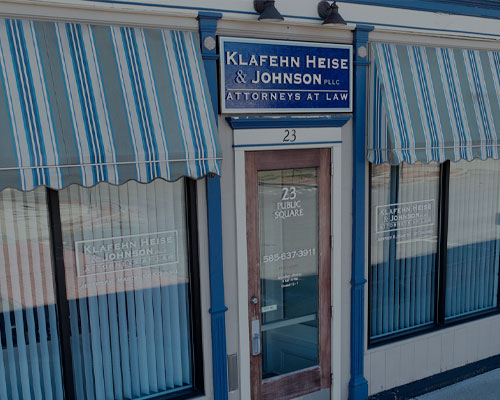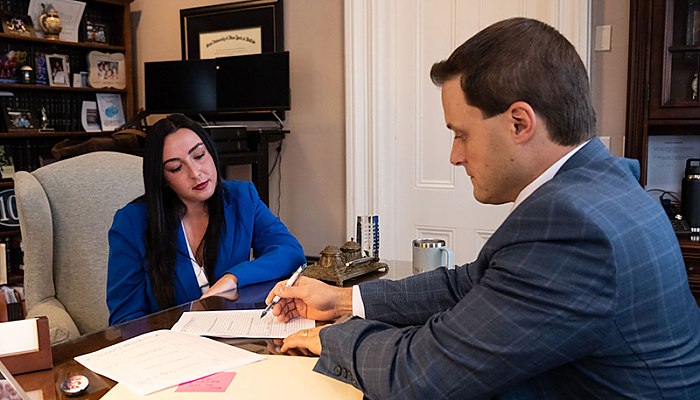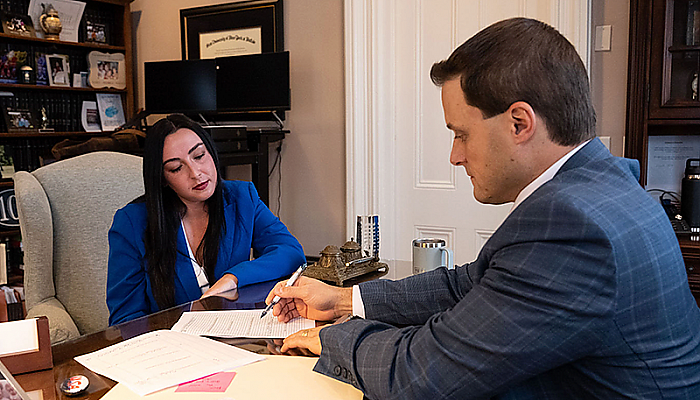Which Elder Care Strategies Combine Both Medicaid and Estate Planning Effectively?

The twilight years are a period of reflection, rest, and ensuring that one's legacy is protected and passed on as intended. It's also a time when many people require additional care and support. With the rising costs of healthcare and long-term care facilities, Medicaid planning can offer essential financial relief. Simultaneously, proper estate planning ensures that your assets are allocated according to your wishes. In a region like Western New York, where families are closely-knit and the well-being of our seniors is paramount, intertwining Medicaid and estate planning becomes crucial. At Klafehn, Heise & Johnson P.L.L.C., we've steered countless families through this delicate balancing act. Let's explore some strategies that harmoniously integrate both.
1. Irrevocable Trusts
One effective method to protect assets while still qualifying for Medicaid is the use of irrevocable trusts. By placing assets within such a trust at least sixty (60) months before needing care, they're no longer considered assets for Medicaid eligibility purposes. Moreover, they are set aside to be passed onto heirs as delineated in the trust. We've helped many Western New York families structure their assets this way, ensuring both elder care needs and inheritance wishes are addressed.
2. Caregiver Agreements
Family members often become caregivers for their elderly loved ones. By establishing a formal caregiver agreement, families can ensure that the caregiver is compensated, which can also serve to "spend down" assets for Medicaid eligibility. In the broader scope of estate planning, this agreement guarantees that assets stay within the family.
3. Purchase of Burial Plots and Prepaid Funeral Expenses
These are considered exempt assets for Medicaid eligibility. By directing funds toward these expenses, seniors can not only ensure that their final wishes are honored but also effectively reduce their countable assets, helping with Medicaid qualification.
4. Establishing Life Estates
Life estates (a/k/a "life tenancy" or "life use") can be beneficial in ensuring that real property is passed down to heirs while preserving Medicaid eligibility. By creating a life estate, the senior retains the right to live in, possess and enjoy the property for their lifetime, and immediately upon the senior's death, the property automatically transfers to the designated recipients without passing through probate or administration.
5. Gifting with Caution
While gifting assets can reduce one's estate and protect assets from nursing home costs, it's essential to be cautious. Medicaid has a sixty (60) month "look-back" period, during which any gifts or transfers can impact eligibility. At Klafehn, Heise & Johnson P.L.L.C., we guide families on how to gift strategically, ensuring it aligns with both Medicaid rules and estate planning goals.
6. Crisis Planning
Even when seniors have not planned ahead for nursing home costs, and there is a crisis that makes such care necessary, there are still ways of protecting more assets than what Medicaid's basic eligibility rules provide. In order to do so, certain tools, facts and circumstances must exist, but there may still be opportunities for protecting assets. At Klafehn Heise & Johnson P.L.L.C., we are experienced in implementing techniques such as "spousal refusal", "gift and note planning", etc. in order to protect as much of the institutionalized senior's assets as possible. If someone you know needs nursing home care, and they think they have no choice but to spend most or all of what they have on the costs of that care, encourage them to seek out the advice of the experienced Medicaid and elder law attorneys at Klafehn Heise & Johnson P.L.L.C.
Conclusion
The golden years should be about comfort, care, and cherishing memories, not financial stress or concerns about the future of one's assets. In Western New York, where the community values come to the forefront, ensuring that our seniors receive the best care without compromising their legacy is a shared goal.
At Klafehn, Heise & Johnson P.L.L.C., we're deeply entrenched in the Rochester community and understand the unique needs and concerns of our residents. We believe in providing solutions that offer peace of mind, ensuring that medical and care needs are met while also securing the estate for the next generation. By intertwining these two vital areas of law, we aim to provide a seamless, comprehensive approach to elder care and legacy planning. In Rochester, we're more than just attorneys; we're neighbors, friends, and family. Let's work together to make the twilight years as golden as they should be.
Legal Disclaimer: This article provides general information about practical strategies for estate planning and probate. It should not be construed as legal advice or a substitute for consulting with an attorney. Each individual's situation is unique, and laws can vary from state to state. For specific legal advice and guidance tailored to your transactions and circumstances, consult with the attorneys at Klafehn, Heise & Johnson PLLC. Portions of this account are considered ATTORNEY ADVERTISING under the New York State Unified Court System Rules of Professional Conduct (22 NYCRR Part 1200). Prior results do not guarantee a similar outcome.
‹ Back













